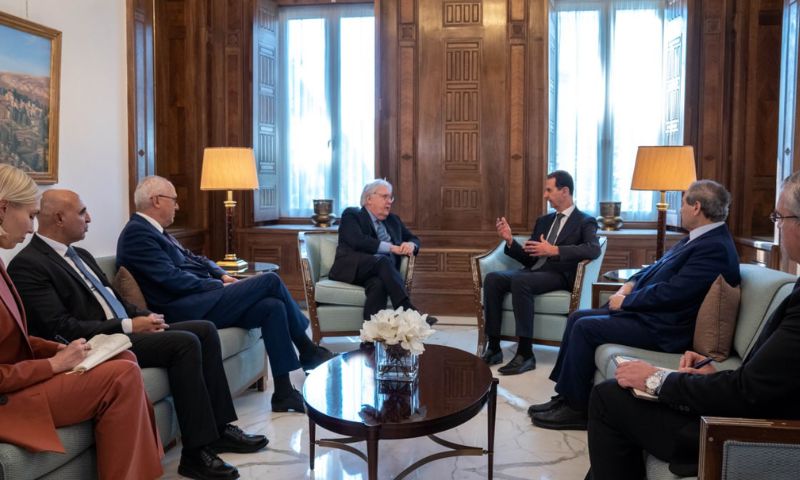After the United Nations endorsed the extension of the Syrian regime’s control over border crossings along the Turkish border, a subsequent revelation emerged regarding an “understanding” between the international body and the regime, specifically concerning the “Bab al-Hawa” crossing. This development has raised questions about potential concessions granted to Russia’s ally, which holds significant power within the Security Council.
On August 8th, the United Nations Office for the Coordination of Humanitarian Affairs announced the Syrian government’s decision to extend the usage of the “Bab al-Salamah” and “Al-Rai” crossings until November 13th. These two crossings, under Syrian opposition control, originate from Turkey and lead into northwestern Syria. The “Bab al-Hawa” crossing, a vital passage, is also managed by the opposition.
First Lady Urges Collective Responsibility to Ensure Every Child’s Right to be Heard
Simultaneously, Secretary-General Antonio Guterres expressed approval for an “understanding” reached with the regime. This agreement outlines the use of the “Bab al-Hawa” crossing for humanitarian aid delivery to northwestern Syria over the next six months. The understanding was the result of negotiations between Under-Secretary-General for Humanitarian Affairs Martin Griffiths and the regime, aiming to ensure comprehensive and principled humanitarian access while maintaining the operational independence of the United Nations.
However, the regime’s conditions included coordinating aid distribution with the Syrian government, which has been met with reluctance. The regime’s willingness to allow United Nations agencies to transport aid through the “Bab al-Hawa” crossing was contingent on cooperation with the government.
Sabbagh’s letter outlined that United Nations agencies should avoid engagement with “terrorist organizations,” referencing local authorities in the region. He also proposed that the “Syrian Red Crescent” oversee aid distribution. However, the United Nations rejected these terms, citing concerns about operational necessity and the potential compromise of the international body’s autonomy.
Since July 11th, the Bab al-Hawa crossing has ceased to receive international aid due to the Security Council’s failure to renew the “cross-border” mechanism, resulting from Russia’s veto of a draft resolution. In contrast, following a catastrophic earthquake in February, UN delegations visited northern Syria, coinciding with meetings in Damascus. The regime agreed to deliver aid through additional border crossings with Turkey over a three-month period.
The Syrian regime’s representative to the United Nations, Bassam Sabbagh, asserted that an “agreement between Syria and the United Nations” obviated the need for Security Council approval. This marked a shift in decision-making authority from the Security Council to the regime.
Muhammad Katoub, a Syrian doctor, humanitarian activist, and former aid and advocacy worker, communicated to Enab Baladi that a new phase has emerged, necessitating regime approval for the cross-border aid entry mechanism. This approval effectively precludes intervention by the Security Council.
While the traditional process involved the Security Council granting aid entry approval based on the lack of consent from the “relevant country,” the current “understanding” places this decision squarely in the hands of the regime. This shift is significant, as the decision-making authority had resided with the Security Council for a span of nine years. Despite the issuance of numerous legal analyses confirming that United Nations agencies can operate independently of the regime’s government or Security Council endorsement, as per Katoub, the United Nations maintains a preference for adhering to the Security Council’s mechanism or securing regime approval.
This approach serves to preclude the establishment of a precedent whereby UN officials operate under an alternate mechanism for the first time. Additionally, it aims to mitigate potential pressure from both the regime and Russia, as articulated by Katoub.
This article was translated and edited by The Syrian Observer. The Syrian Observer has not verified the content of this story. Responsibility for the information and views set out in this article lies entirely with the author.


